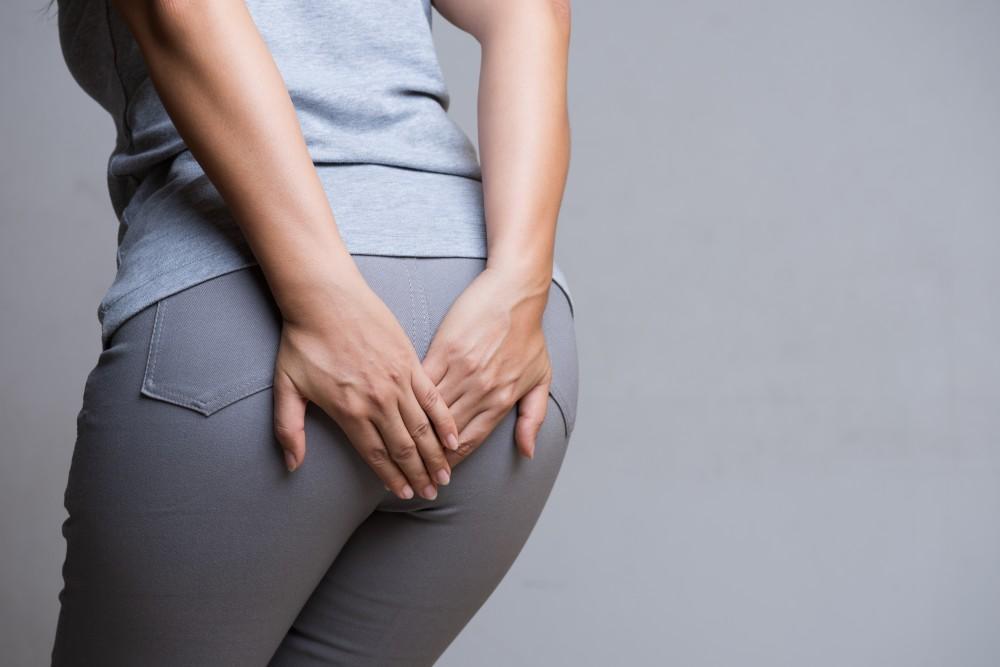Last updated on December 19th, 2024 at 12:18 pm

Anal fissure treatment refers to the medical care and interventions aimed at healing small tears or cracks in the lining of the anal canal. This treatment can encompass various approaches, including dietary modifications to soften stools, the use of topical medications for pain relief and inflammation reduction, as well as surgical procedures in cases where conservative methods are ineffective.
Effective anal fissure treatment is crucial in alleviating pain and discomfort, promoting healing, and preventing the condition from worsening or becoming chronic.
Anal Fissure Diagnosis
Diagnosing an anal fissure typically involves a medical examination and discussion of symptoms. Healthcare providers will inquire about pain during bowel movements, bleeding, and discomfort. They may conduct a physical examination of the anal area to identify fissures or other potential issues.
In some cases, a digital rectal exam or anoscopy may be performed to get a closer look. While diagnosis is often straightforward based on symptoms and examination, further tests like colonoscopy may be recommended if there are concerns about underlying conditions.
Anal Fissure Treatment
The Treatment of Anal Fissure are mentioned below:
Dietary and Lifestyle Changes
For many individuals with anal fissures, the first step in treatment involves making dietary and lifestyle adjustments. Increasing fibre intake through a diet rich in fruits, vegetables, whole grains, and legumes can soften stools and make bowel movements smoother and less painful. Drinking plenty of water is also essential to prevent constipation and maintain regular, soft stools.
Topical Medications
Over-the-counter or prescription topical medications can provide relief from anal fissure symptoms. These medications often contain ingredients like hydrocortisone, lidocaine, or nitroglycerin.
Hydrocortisone can help reduce inflammation, lidocaine can numb the area, and nitroglycerin relaxes the anal sphincter muscles, promoting healing by improving blood flow. These creams or ointments are typically applied directly to the affected area as directed by a healthcare provider.
> Consult a Doctor and Medkart will help you Order Medicines Online
Stool Softeners and Laxatives
In some cases, healthcare providers may recommend stool softeners or laxatives to prevent constipation and reduce strain during bowel movements. This can be particularly helpful when dietary changes alone are insufficient.
Botulinum Toxin (Botox) Injection
For individuals with chronic fissures that do not respond to other treatments, a botox injection into the anal sphincter muscle may be considered. Botox can temporarily relax the sphincter muscle, reducing spasms and promoting healing.
Prescription Medications
Calcium channel blockers like diltiazem or nifedipine can be prescribed to relax the anal sphincter muscle, reducing pressure on the fissure and promoting healing. These medications are typically applied topically or in an ointment form.
Surgery
In cases where conservative treatments and medications do not provide relief, surgery may be necessary. Lateral internal sphincterotomy is the most common surgical procedure for anal fissures treatment. During this procedure, a small portion of the anal sphincter muscle is cut to reduce pressure on the fissure. Other surgical options include advanced techniques like anal advancement flaps, which involve repositioning nearby tissue to cover the fissure.
Anal Fissure Treatment at Home
Here are some effective anal fissure treatments at home:
- Dietary Changes: Start by adjusting your diet to include more fiber-rich foods like fruits, vegetables, whole grains, and legumes. Fibre softens stools and makes bowel movements smoother, reducing the risk of further irritation and tearing.
- Hydration: Maintain optimal hydration by ensuring you consume an ample amount of water throughout the day. This helps maintain soft stools and prevents constipation, which can exacerbate fissure symptoms.
- Warm Sitz Baths: Soaking in a warm sitz bath for 15-20 minutes several times a day can provide relief from pain and discomfort. The warm water helps relax the anal muscles and promotes blood flow to the area, aiding in healing.
- Topical Ointments: Over-the-counter creams containing ingredients like hydrocortisone or lidocaine can be applied to the anal area to reduce inflammation and numb pain. Follow your healthcare provider’s recommendations.
- Proper Hygiene: After bowel movements, gently clean the anal area with mild, unscented wipes or water to avoid further irritation. Pat the area dry rather and avoid rubbing it.
- Avoid Straining: Make an effort to avoid straining during bowel movements. You can achieve this by not delaying bathroom trips when you feel the urge, and using a footstool to elevate your knees slightly when on the toilet to help facilitate easier bowel movements.

Fissure Treatment by Yoga
Yoga can be a valuable complementary approach in the treatment of anal fissures. Specific yoga postures and practices can help alleviate symptoms and promote healing. Asanas like the Pavanamuktasana (Wind-Relieving Pose) and Malasana (Squat Pose) can aid in relieving constipation and reducing pressure on the anal area.
Stress reduction through mindfulness and deep breathing techniques can also play a crucial role, as stress can exacerbate fissure discomfort. While yoga can be a helpful part of a holistic approach to fissure management, it should be practised in conjunction with other medical treatments and under the guidance of a qualified instructor to ensure safety and effectiveness.
Conclusion:
It’s crucial to consult with a healthcare provider if you suspect you have an anal fissure or if you experience persistent symptoms such as pain, bleeding, or discomfort during bowel movements.
Timely and appropriate anal fissure treatment can not only alleviate symptoms but also help prevent the condition from becoming chronic. Additionally, healthcare professionals can tailor treatment plans to meet individual needs and promote a quicker and more comfortable recovery.
Read: What are Generic Medicines?
Benefits of Generic Medicine
Generic medicines offer several benefits, including cost savings for consumers due to their lower prices compared to brand-name equivalents. They are subject to rigorous regulatory standards, ensuring their safety, efficacy, and quality.
Generic medications provide the same active ingredients as brand-name drugs, making them equally effective. Additionally, their widespread availability enhances access to essential treatments, promoting better healthcare affordability and accessibility for individuals and healthcare systems.
FAQs on Anal Fissure Treatment
Q1. What is anal fissures treatment?
Anal fissure treatment involves addressing small tears or cracks in the anal lining. It typically includes dietary adjustments to soften stools, topical medications for pain relief, and, in severe cases, surgical options to promote healing and reduce discomfort.
Q2. Can anal fissures heal on their own without treatment?
Yes, some anal fissures may heal naturally with dietary and lifestyle changes, but treatment can help speed up the healing process and alleviate symptoms.
Q3. Is surgery always required for anal fissure treatment?
No, surgery is typically considered when conservative treatments and medications fail. Many anal fissures can be successfully managed with dietary modifications, topical ointments, and other non-invasive approaches.
Related Links:
- Urticaria Treatment
- Urinary Tract Infection Treatment
- Skin Whitening Treatment
- Parkinson’s Disease Treatment
- Low BP Treatment
- Hypothyroidism Treatment
- Hypertension Treatment
- Hair Loss Treatment for Male and Female
- Erectile Dysfunction Treatment

